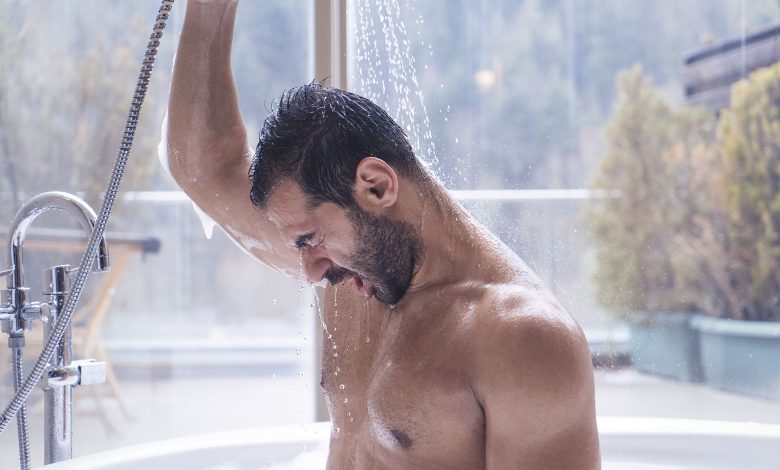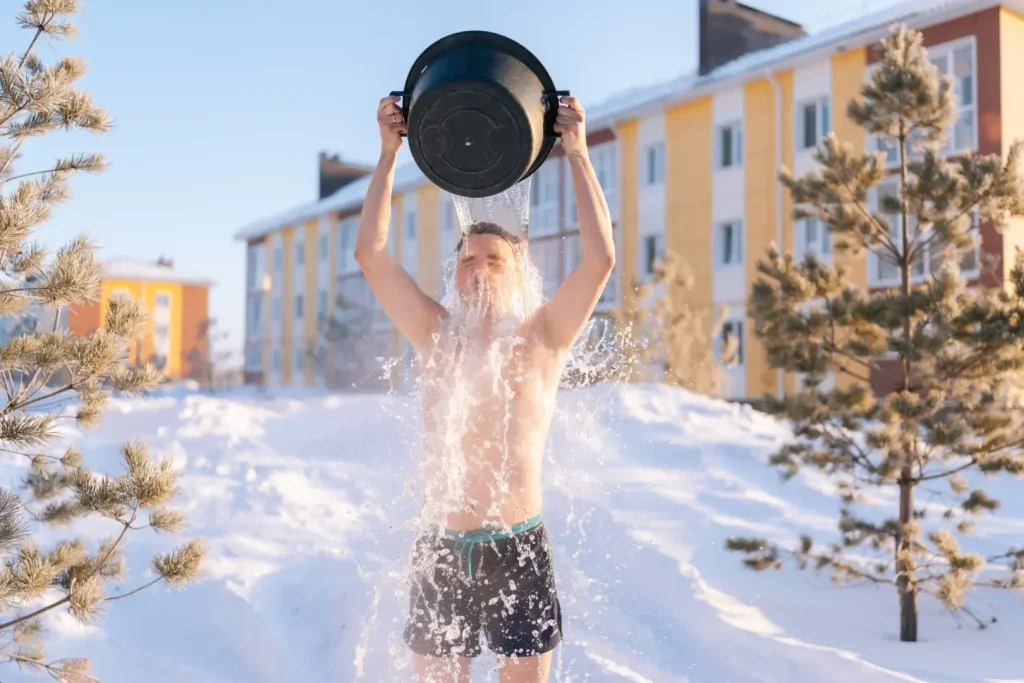The Science Behind Cold Showers and Mental Strength

The science behind cold showers and mental strength is a fascinating topic that blends biology, psychology, and practical self-improvement. Cold showers are more than a trend—they have real effects on your body and mind. This article explains how cold exposure works, why it can boost mental toughness, and how you can use it to build resilience in daily life. You’ll find clear explanations, real case studies, tips, a comparison table, and answers to common questions.
Introduction: The Science Behind Cold Showers and Mental Strength
Why are cold showers suddenly popular among athletes, entrepreneurs, and wellness experts? The answer lies in the science of stress, adaptation, and mental resilience. Cold showers are a simple, accessible way to train your body and mind to handle discomfort and build willpower.
What Happens to Your Body During a Cold Shower?
When you step into a cold shower, your body reacts immediately:
- Shock response: Your heart rate and breathing speed up.
- Vasoconstriction: Blood vessels narrow to keep your core warm.
- Adrenaline spike: Your body releases stress hormones, making you alert.
- Endorphin release: After the initial shock, your body releases feel-good chemicals.
These reactions are part of your body’s natural stress response, similar to what happens during exercise or public speaking.

Key Features and Benefits of Cold Showers
- Boosts alertness: Cold water wakes you up and sharpens focus.
- Improves circulation: Blood moves faster to protect vital organs.
- Strengthens immune system: Some studies suggest regular cold exposure may increase resistance to illness.
- Reduces inflammation: Cold can ease sore muscles and speed up recovery.
- Enhances mood: Endorphins and adrenaline can lift your spirits.
- Builds mental resilience: Facing discomfort daily helps you handle stress better.

The Link Between Cold Showers and Mental Strength
The Science Behind Cold Showers and Mental Strength: How It Works
1. Exposure Therapy for the Mind
Cold showers are a form of voluntary discomfort. By choosing to face the shock and discomfort, you train your brain to stay calm under stress. Over time, this builds confidence and self-control.
2. Hormesis and Adaptation
Hormesis is the idea that small doses of stress make you stronger. Cold showers are a safe way to practice this. Your body and mind adapt, making other challenges feel easier.
3. Mindfulness and Presence
The intense sensation of cold forces you to focus on the present moment. This is similar to meditation and can help reduce anxiety.
4. Building Willpower
Choosing to do something uncomfortable every day strengthens your willpower. This discipline can carry over into work, fitness, and personal goals.

Cold Showers vs Hot Showers: Comparison Table
| Feature | Cold Showers | Hot Showers |
|---|---|---|
| Alertness | High (wakes you up) | Relaxing (may make you sleepy) |
| Circulation | Improves blood flow to core | Relaxes muscles |
| Immune Benefits | May boost immunity | Less effect |
| Mood | Boosts endorphins, energizing | Calming, stress relief |
| Skin and Hair | Tightens pores, reduces oil | Opens pores, can dry skin |
| Mental Strength | Builds resilience and willpower | Comfort, but less challenge |
| Recovery | Reduces inflammation, muscle relief | Soothes soreness |

Case Studies: Real-Life Experiences
Case Study 1: The Athlete’s Edge
A professional runner in Kenya uses cold showers after training. He reports faster recovery and greater mental focus during races.
Case Study 2: The Entrepreneur’s Routine
A tech founder in Lagos starts each day with a cold shower. She says it helps her tackle tough meetings and stay calm under pressure.
Case Study 3: The Student’s Experiment
A university student tries cold showers for 30 days. She finds her energy and confidence improve, especially before exams.
Case Study 4: The Office Worker’s Reset
A remote worker uses a midday cold shower to break up screen time and boost productivity.
Case Study 5: The Stress Survivor
After a stressful year, a teacher adds cold showers to his morning routine. He feels less anxious and more resilient.
Case Study 6: The Fitness Enthusiast
A gym-goer uses cold showers to reduce muscle soreness and speed up recovery after intense workouts.
Case Study 7: The Wellness Blogger
A health blogger documents her journey with cold showers, noting better mood and greater self-discipline.
Case Study 8: The Family Challenge
A family in South Africa tries cold showers for a month. They bond over the challenge and notice improved mood and fewer colds.
Case Study 9: The Executive’s Secret Weapon
A Lagos-based executive uses a cold shower before big presentations. He credits the practice with helping him overcome stage fright and project confidence.
Case Study 10: The Remote Team Challenge
A global marketing team started a “cold shower challenge” to boost morale during remote work. Members reported increased energy and a sense of camaraderie.

Case Study 11: The Burnout Survivor
After burnout, a healthcare worker began taking daily cold showers. She found it helped restore her motivation and reduce anxiety.
Case Study 12: The Athlete’s Comeback
A sprinter recovering from injury used cold showers for pain relief and mental focus, speeding up his return to competition.
How Cold Showers Affect the Brain and Body
The Biological Response
- Cold Shock Proteins: When exposed to cold, your body produces special proteins that help protect cells from stress. These proteins may also support brain health and recovery.
- Norepinephrine Release: Cold exposure triggers a surge in norepinephrine, a hormone linked to alertness, focus, and improved mood.
- Brown Fat Activation: Cold showers stimulate brown adipose tissue, which burns energy to create heat, potentially supporting metabolism.
Mental Benefits Backed by Research
- Stress Adaptation: Regular cold exposure trains your nervous system to stay calm under pressure, making daily stress feel more manageable.
- Improved Mood: Some studies show that cold showers can reduce symptoms of mild depression, likely due to increased endorphin and norepinephrine levels.
- Enhanced Willpower: Facing voluntary discomfort builds self-discipline, which can translate to better habits in work and life.
“Cold showers are a form of controlled stress. By choosing discomfort, you build resilience that helps in all areas of life.”
— Dr. Tunde Adebayo, Clinical Psychologist
Cold Showers in Different Cultures
- Nordic Countries: Cold water plunges and sauna-cold cycles are traditional practices in Finland, Sweden, and Norway, seen as keys to health and longevity.
- Japan: Samurai practiced “misogi” (cold water purification) for mental clarity and spiritual strength.
- Nigeria and Africa: In hot climates, cold showers are common for refreshment, but more people now use them intentionally for their mental benefits.
Cold Showers and Workplace Performance
- Focus and Productivity: Many professionals report that a morning cold shower boosts alertness, sharpens focus, and helps them tackle challenging tasks.
- Leadership and Resilience: Leaders who practice cold exposure often say it helps them stay calm during crises and make better decisions under pressure.
Visual: Cold Shower Benefits Matrix
| Benefit | Physical Effect | Mental Effect | Practical Impact |
|---|---|---|---|
| Increased alertness | Heart rate and breathing rise | Sharper focus | Better morning performance |
| Stress resilience | Nervous system adapts to stress | More calm under pressure | Improved workplace confidence |
| Mood boost | Endorphins and norepinephrine up | Reduced anxiety, better mood | More positive interactions |
| Immune support | May stimulate immune response | Sense of control and discipline | Fewer sick days, more energy |
| Recovery | Reduces muscle soreness | Builds routine and willpower | Faster post-workout recovery |
Pros and Cons Table
| Pros of Cold Showers | Cons of Cold Showers |
|---|---|
| Boosts alertness and energy | Uncomfortable, especially at first |
| May strengthen immune system | Not suitable for everyone (health risks) |
| Reduces muscle soreness | Can be shocking for heart conditions |
| Builds mental resilience and willpower | May worsen certain skin conditions |
| Improves mood and focus | Difficult to maintain as a habit |
| Increases circulation | Not as relaxing as hot showers |
Tips for Building Mental Strength with Cold Showers
- Start slow: Begin with lukewarm water, then lower the temperature gradually.
- Set a timer: Try 30 seconds at first, then increase as you adapt.
- Focus on your breath: Slow, deep breaths help you stay calm.
- Stay consistent: Daily practice builds resilience faster.
- Pair with a routine: Attach cold showers to your morning or after-work habits.
- Track your progress: Note changes in mood, focus, and energy.
- Listen to your body: If you feel dizzy or unwell, stop and consult a doctor.
- Celebrate small wins: Each shower is a victory for your willpower.
- Set a clear goal: Decide if you want to boost energy, build resilience, or recover faster.
- Track your progress: Keep a simple journal of how you feel before and after each shower.
- Pair with breathing exercises: Practice slow, deep breaths to stay calm during the cold.
- Reward yourself: Celebrate each successful shower to build positive associations.
- Join a challenge: Invite friends or colleagues to try cold showers together for accountability.
Expert Quotes and Insights
“The mental strength gained from cold showers is not just about enduring discomfort, but about choosing to face it. That choice builds confidence.”
— Dr. Adaeze Okafor, Wellness Coach
“Cold exposure is a safe, practical way to build resilience. Even a short cold shower can reset your mood and mindset for the day.”
— Samuel Mensah, Sports Therapist
The Risks and How to Stay Safe
- Consult a doctor if you have heart or respiratory conditions.
- Start with lukewarm water and lower the temperature gradually.
- Never force yourself if you feel faint, dizzy, or unwell.
- Listen to your body and take breaks as needed.
The Future of Cold Showers and Mental Strength
As more people seek natural ways to boost resilience and performance, cold showers are likely to become a staple in wellness routines worldwide. They’re free, accessible, and supported by both science and centuries of tradition.
Frequently Asked Questions (FAQ)
1. Are cold showers safe for everyone?
Most healthy people can try cold showers, but those with heart or respiratory conditions should consult a doctor first.
2. How long should a cold shower last?
Start with 30 seconds and work up to 2-5 minutes as you get used to it.
3. Can cold showers help with depression or anxiety?
Some people report improved mood, but cold showers are not a substitute for professional mental health care.
4. Do cold showers really boost the immune system?
Some studies suggest benefits, but more research is needed.
5. Will cold showers help me lose weight?
They may slightly increase calorie burn, but are not a weight-loss solution on their own.
6. Is it better to take cold showers in the morning or evening?
Morning cold showers boost alertness; evening ones may disrupt sleep for some people.
7. Can I alternate hot and cold showers?
Yes, contrast showers are popular for muscle recovery.
8. What if I hate the cold?
Start with short bursts and focus on the mental challenge.
9. Are there risks to cold showers?
Yes, especially for people with certain health conditions. Always listen to your body.
10. How do cold showers build mental strength?
By facing discomfort daily, you train your mind to handle stress and build discipline.
Conclusion
The science behind cold showers and mental strength shows that a simple daily habit can boost your resilience, focus, and mood. Cold showers are not a magic cure, but they are a powerful tool for anyone looking to build mental toughness and embrace healthy challenges. Start slow, stay consistent, and discover the benefits for yourself.




